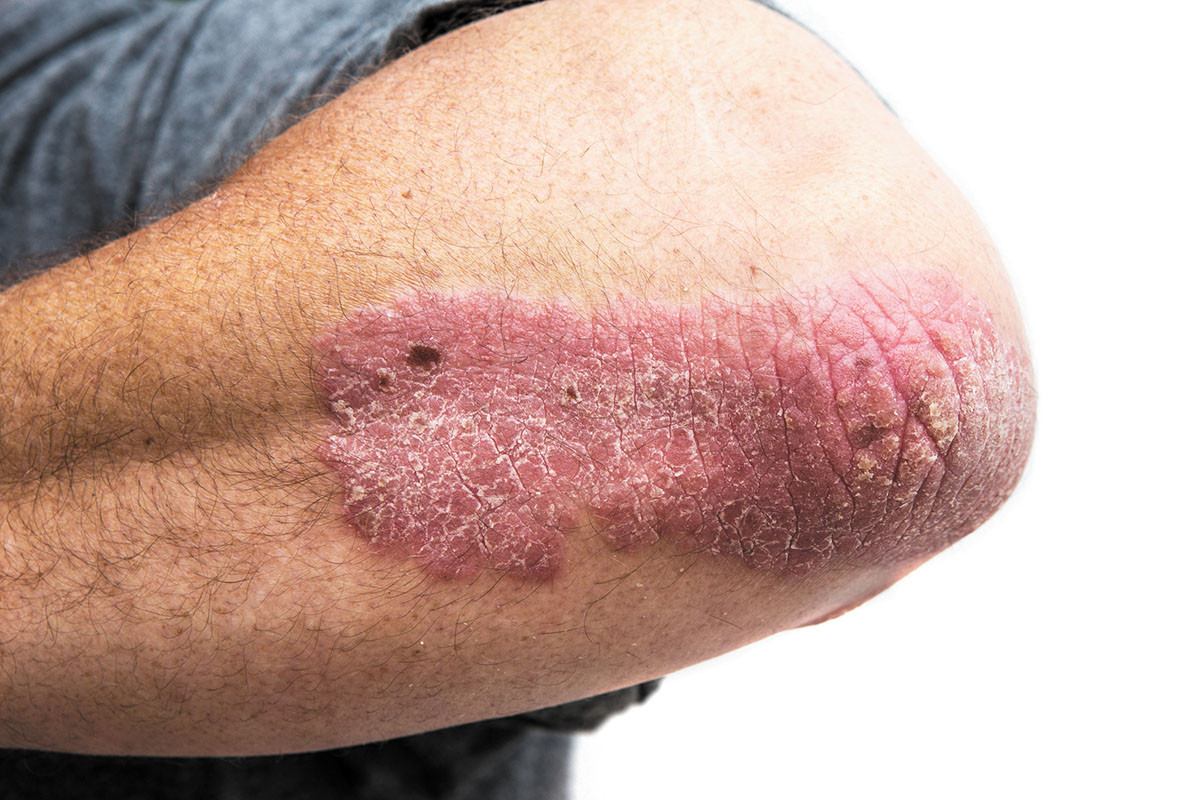Recent Articles

Hospice care: Overview of a compassionate approach to end-of-life care

Foot pain: A look at why your feet might hurt

Matcha: A look at possible health benefits

Wildfires: How to cope when smoke affects air quality and health

Forearm workouts: Strengthening grip for everyday function

Depression symptoms: Recognizing common and lesser-known symptoms

Medication side effects: What are your options?

Independent living with home care assistance: Balancing autonomy and support

Dialysis: What to expect from this life-changing — and lifesaving — treatment

The BEEP program: Keep your balance
Skin and Hair Archive
Articles
Coffee tied to decreased rosacea risk
News briefs
Image: © agrobacter/Getty Images
For some people, it's tough to prevent flare-ups of rosacea, the reddened and sometimes bumpy skin that shows up on the cheeks, nose, and other areas of the face. Caffeine, heat and sun exposure, and a long list of foods (everything from spicy foods to yogurt) have been thought to trigger rosacea or make it worse. But a study published online Oct. 17, 2018, by JAMA Dermatology not only pokes a hole in the idea that caffeine is to blame, it also suggests that one major caffeine source — coffee — might even reduce the risk of rosacea. Researchers analyzed health and diet survey responses gathered every four years from nearly 83,000 women (most of whom were white) from 1991 to 2005. It turns out that women who drank four or more cups of caffeinated coffee per day were 23% less likely to report a diagnosis of rosacea during the study period, compared with women who drank less than one cup per month. Increased caffeine intake from tea, soda, and chocolate had no impact on the likelihood of developing rosacea. The study was only observational and can't prove cause and effect. But coffee has also been linked to many other health benefits, including lower blood pressure, a slower rate of weight gain with age, and reduced risks for developing type 2 diabetes or dying from cardiovascular disease or neurological diseases.
How do I deal with dry, itchy winter skin?
On call
Q. My skin gets dry and itchy in winter, and there are so many moisturizers available. What should I look for?
A. Dry skin develops when your skin doesn't retain sufficient moisture. This is often a problem in winter when the air both indoors and outdoors has low humidity, as the water content of our skin tends to reflect the level of humidity around it. Fortunately, using a good moisturizer is a simple way to relieve winter dry skin.
My doctor says I have a skin condition called hidradenitis suppurativa. How is that normally treated?
Ask the doctors
Q. I was recently diagnosed with hidradenitis suppurativa. What could have caused this condition, and can it be cured? What are the usual treatments?
A. Hidradenitis suppurativa is an uncommon skin condition that starts out as pimple-like lesions on the skin. If left untreated, it can grow deeper into the tissue and over time can lead to painful fluid-filled lumps or thick scars. The condition is most common on parts of the body where skin presses up against skin, such as the groin, the underarms, the thighs, or the buttocks. Hidradenitis suppurativa most often affects younger people, particularly women, and most often happens after puberty. It's less common in people over age 55. Other risk factors include smoking and being overweight or obese, and it seems to run in families. Experts aren't really sure what causes hidradenitis suppurativa, but hormones and the immune system may play a role. Some experts believe that an ordinary blockage in the skin triggers an overzealous immune system reaction, which leads to symptoms. The good news is that you can't spread the condition to other people, and it is treatable. Catching the problem early can minimize problems. There are numerous treatment options for hidradenitis suppurativa, including antibiotics, hormonal medications and skin treatments, such as acne washes or special bleach baths. In more severe cases, your doctor might also recommend biologic therapy to dampen the immune response or surgery to remove or drain the affected skin. Even after treatment, the condition may require ongoing monitoring to treat or prevent recurrences.
Warning: Avoid these novel treats in shopping malls and restaurants
News briefs
Image: © manustart/Getty Images
If your grandkids urge you to indulge them in a popular new snack at the mall, just say no. The FDA is warning that consuming products with liquid nitrogen added at the last minute can lead to injury. The products are marketed under names such as "Dragon's Breath" and "Nitro Puff." They're cheese puffs or cereal pieces that are frozen in liquid nitrogen and then dipped in a special sauce. When you put them in your mouth, the products release vapor that looks like smoke. Liquid nitrogen is also added to some cocktails to make them look like they're emitting fog. But the FDA says all of these products can cause severe damage to skin and internal organs and may cause breathing problems. The agency advises you to avoid the products.
A deeper look at psoriasis
There are ways to shorten flare-ups and, in some people, prevent them from recurring.
Image: © JodiJacobson/Getty Images
Psoriasis is a big star on TV drug ads, but this autoimmune skin disease is something most people try to keep well hidden.
"Psoriasis is among the most common skin conditions, affecting about 2% of the U.S. population, and while the condition doesn't affect everyone the same way, the approach to treatment and prevention is often similar," says Dr. Gideon Smith, an assistant professor of dermatology at Harvard-affiliated Massachusetts General Hospital.
Can a gluten-free diet help my skin?
Ask the doctors
Image: © fcafotodigital/Getty Images
Q. I have terrible skin, and a friend recently recommended that I eliminate gluten from my diet to help manage my condition. Will this work?
A. Not necessarily. Gluten has gotten a lot of attention in recent years. Some people believe that eating gluten can inflame the skin and, therefore, cutting it out will help relieve red, inflamed skin or other skin conditions, such as psoriasis or eczema.
Don't fall for these skin myths
Think you know a lot about skin and skin care? You might be surprised at how much "common knowledge" about keeping your skin clear and healthy is simply not true.
Here, we debunk 10 common myths about skin.
1. The right skin cream can keep your skin looking young.
Recent Articles

Hospice care: Overview of a compassionate approach to end-of-life care

Foot pain: A look at why your feet might hurt

Matcha: A look at possible health benefits

Wildfires: How to cope when smoke affects air quality and health

Forearm workouts: Strengthening grip for everyday function

Depression symptoms: Recognizing common and lesser-known symptoms

Medication side effects: What are your options?

Independent living with home care assistance: Balancing autonomy and support

Dialysis: What to expect from this life-changing — and lifesaving — treatment

The BEEP program: Keep your balance
Free Healthbeat Signup
Get the latest in health news delivered to your inbox!
Sign Up











